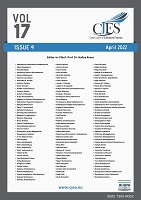Inclusive MOOC – educational content for deaf people, a Portuguese proof of concept
Inclusive MOOC – educational content for deaf people, a Portuguese proof of concept
Author(s): Paula Escudeiro, Bruno Galasso, Dirceu Teixeira, Márcia Campos Gouveia, Nuno EscudeiroSubject(s): Theory of Communication, Health and medicine and law, Inclusive Education / Inclusion, Pedagogy
Published by: Birlesik Dunya Yenilik Arastirma ve Yayincilik Merkezi
Keywords: educational content; inclusive MOOC; pedagogical model; assistive technology; automatic translator;
Summary/Abstract: The communication gap between deaf and non-deaf communities arises due to the use of distinct mother languages. A deaf student, who used to communicate in sign language, cannot read fluently materials written in spoken language. This fact causes serious difficulties to deaf students since most didactic materials in higher education are available exclusively in spoken languages. In this paper, we propose a pedagogical model to deliver educational materials in sign language aiming to provide deaf students the same conditions to succeed as the others, i.e., didactical materials available in one’s mother language. Our approach involves the integration of automatic translation technology between spoken and sign language pairs into MOOCs. As a proof of concept, we used this methodology to design a course addressing digital literacy for schoolteachers. The evaluation of the inclusive MOOC and its underlying model reveals its potential, even though further improvements are required, especially regarding evaluation and usability features.
Journal: Kıbrıslı Eğitim Bilimleri Dergisi
- Issue Year: 17/2022
- Issue No: 4
- Page Range: 1285-1303
- Page Count: 19
- Language: English

